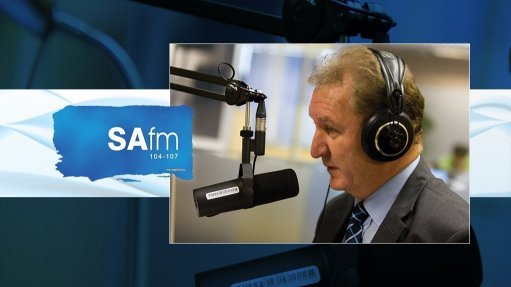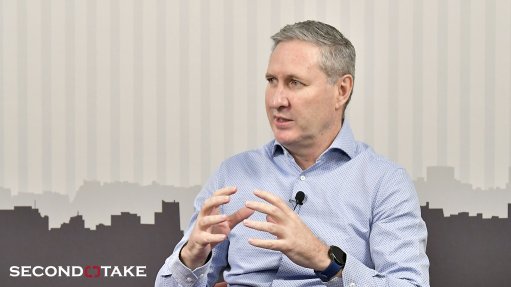The lights are still not on, but someone has finally come home
This article has been supplied as a media statement and is not written by Creamer Media. It may be available only for a limited time on this website.
By Jerome Brink, Director: Tax & Exchange Control Practice at Cliffe Dekker Hofmeyr
Every South African is currently faced with the ongoing negative effects of rolling electricity blackouts, which Government euphemistically refers to as “loadshedding”. It affects our businesses, our homes, our livelihoods, our safety and our faith in the future of our country. It is no wonder that the theme on everyone’s lips leading up to this year’s Budget was whether Government would come to the party and provide some type of incentive or initiative that would help alleviate the pressure on the national grid and return the country’s energy supply to some semblance of normality.
Vietnam is a case in point. While electricity consumption in Vietnam has increased substantially since the early 1990s, it has enacted various reforms to keep up with this increased consumption, thereby ensuring no electricity crisis. Included in these reforms are various tax incentives such as preferential tax rates for income derived from renewable energy, import duty incentives and other indirect tax incentives. On the other side of the spectrum is Venezuela, which suffered a complete collapse of its national grid that took a week to restore due to the ongoing neglect of infrastructure and rampant corruption. While National Treasury and SARS have already played a role by granting renewable energy incentives, the most well-known of which is the ITA’s section 12B accelerated capital allowance on renewable energy assets, many South Africans have increasingly called for an expansion of the existing incentives and initiatives to fast track the uptake in rooftop solar and wind energy. Those listening to the Budget today therefore breathed a collective sigh of relief, followed by a broad “Colgate” smile when learning of the various announcements made by Government. We highlight some of the key announcements in this article.
Expanded 125% renewable energy tax incentive for businesses
Currently, the section 12B allowance provides that businesses can deduct the costs of certain renewable energy installations over a one or three-year period, which creates a cash flow benefit in the early years of a project. Under the expanded incentive announced in the Budget today, businesses will be able to claim a 125% deduction in the first year for all renewable energy projects with no thresholds on generation capacity.
This means, irrespective of the capacity of the renewable energy assets (i.e. less than or more than 1MW), one will be able to claim the 125% deduction. This is a departure from the existing incentive, which made a distinction between projects generating less than 1MW (which could be depreciated by 100% in year one) and those generating more than 1MW (which could be depreciated over a three-year period). This also aligns with the recent increase in the licensing threshold for embedded generation to 100MW.
The adjusted incentive for business will only be available for investments brought into use for the first time between 1 March 2023 and 28 February 2025. If, for example, a renewable energy investment of R1 million is made by a business, that business will qualify for a deduction of R1,25 million. According to National Treasury, this deduction could reduce the corporate income tax liability of a company by R337,500 in the first year of operation.
Renewable energy incentives for private households
A further welcome proposal relates to rooftop solar incentives for individuals to invest in solar PV. Individuals will be able to receive a tax rebate to the value of 25% of the cost of any new and unused solar PV panels. Notably, to qualify for the allowance, the solar panels must be purchased and installed at a private residence, and a certificate of compliance for the installation must be issued between 1 March 2023 and 29 February 2024.
Even though inverters and batteries form a substantial cost of any home energy installation, the rebate will be limited to solar PV panels, and not inverters or batteries. National Treasury states that this is to ensure a focus on the promotion of additional generation of energy. This is likely to be in anticipation of allowing homeowners to sell electricity back into the grid to alleviate pressure on Eskom. In fact, it was also announced that the start of feed-in tariffs in some municipalities (e.g. the City of Cape Town) may require adjustments to the Income Tax Act 58 of 1962 (ITA) to cater for additional revenue from electricity sales.
Practically, it has been proposed that the private solar energy incentive can be used to offset an individual’s personal income tax liability for the 2023/24 tax year up to a maximum of R15,000 per individual.
Impact on the fiscus
National Treasury has indicated that tax relief amounting to R13 billion in 2023/24 will be provided to taxpayers. Notably, R9 billion of this amount is provided to encourage households and businesses to invest in renewable energy, supporting the clean energy transition and addressing the electricity crisis. More specifically, R4 billion in relief is provided for households that install solar panels and R5 billion to companies through the expansion of the existing renewable energy incentive.
In comparison to the negative impact that loadshedding has on South Africa’s economy and its people’s psyche, this is a small price to pay. While more details will emerge in the coming weeks, every South African will welcome these announcements with a view to hopefully having the lights being switched back on.
Comments
Press Office
Announcements
What's On
Subscribe to improve your user experience...
Option 1 (equivalent of R125 a month):
Receive a weekly copy of Creamer Media's Engineering News & Mining Weekly magazine
(print copy for those in South Africa and e-magazine for those outside of South Africa)
Receive daily email newsletters
Access to full search results
Access archive of magazine back copies
Access to Projects in Progress
Access to ONE Research Report of your choice in PDF format
Option 2 (equivalent of R375 a month):
All benefits from Option 1
PLUS
Access to Creamer Media's Research Channel Africa for ALL Research Reports, in PDF format, on various industrial and mining sectors
including Electricity; Water; Energy Transition; Hydrogen; Roads, Rail and Ports; Coal; Gold; Platinum; Battery Metals; etc.
Already a subscriber?
Forgotten your password?
Receive weekly copy of Creamer Media's Engineering News & Mining Weekly magazine (print copy for those in South Africa and e-magazine for those outside of South Africa)
➕
Recieve daily email newsletters
➕
Access to full search results
➕
Access archive of magazine back copies
➕
Access to Projects in Progress
➕
Access to ONE Research Report of your choice in PDF format
RESEARCH CHANNEL AFRICA
R4500 (equivalent of R375 a month)
SUBSCRIBEAll benefits from Option 1
➕
Access to Creamer Media's Research Channel Africa for ALL Research Reports on various industrial and mining sectors, in PDF format, including on:
Electricity
➕
Water
➕
Energy Transition
➕
Hydrogen
➕
Roads, Rail and Ports
➕
Coal
➕
Gold
➕
Platinum
➕
Battery Metals
➕
etc.
Receive all benefits from Option 1 or Option 2 delivered to numerous people at your company
➕
Multiple User names and Passwords for simultaneous log-ins
➕
Intranet integration access to all in your organisation
















